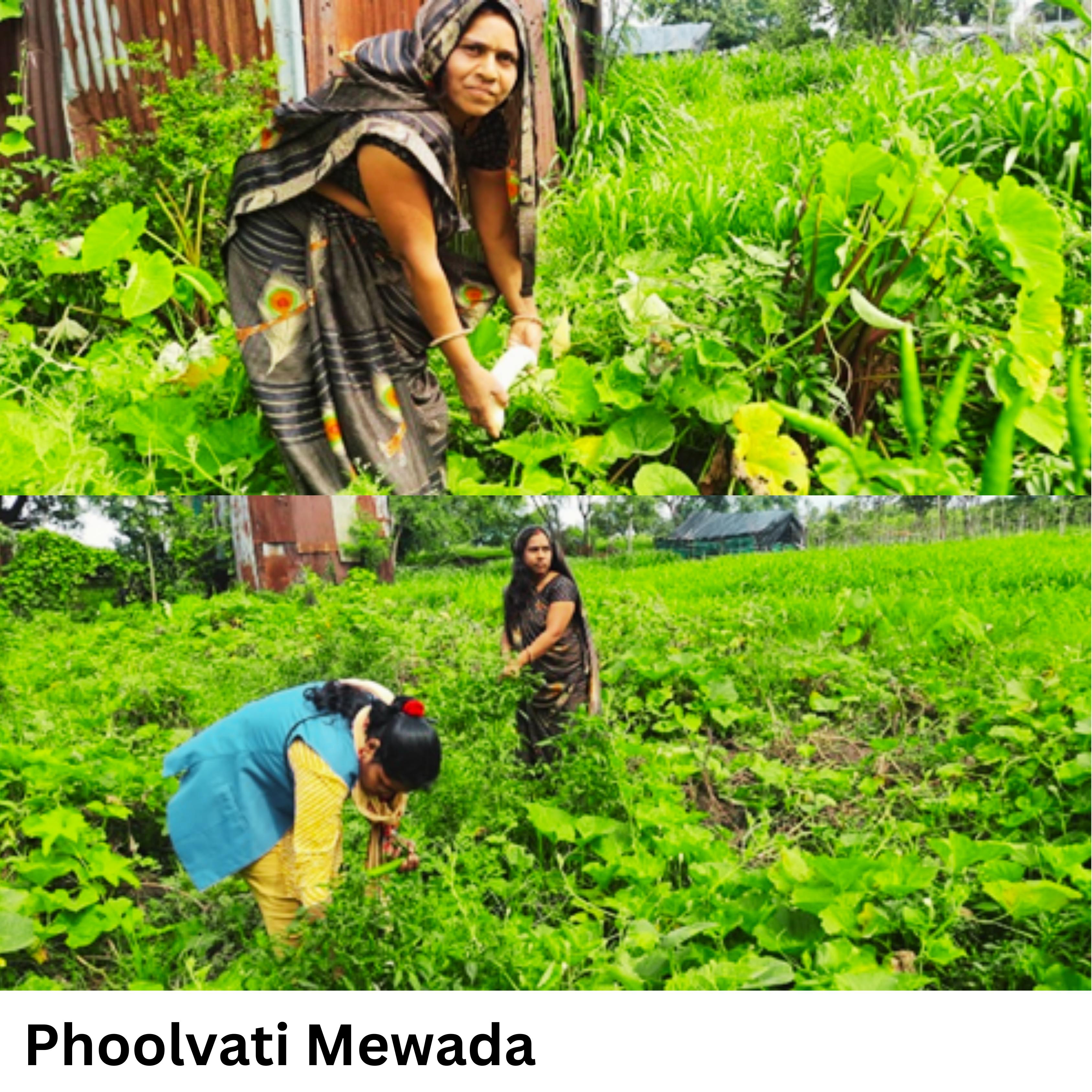
In the village of Raipura, Sehore district, resides a dedicated
and hardworking farmer woman named Phoolwati Mevada. Her husband, Dinesh Mevada, runs a grocery store and spends most of his
time away from home, leaving Phoolwati to manage all agricultural activities.
She cultivates a variety of vegetables in large quantities across her 1.5-acre
farm.
Phoolwati s family consists of three
members: herself, her husband, and their son. She has always been concerned
about the health of her husband and son, especially after the tragic loss of
her daughter to a snakebite.
After joining the Good Farming–Good
Food–Good Health programme in 2022, Phoolwati underwent intensive training
on nutrition, organic farming, and sustainable practices. One of the key
transformations she experienced was the incorporation of soybeans into their
daily diet, guided by the programme s nutrition experts. She learned to prepare
soybean-based dishes like soy dal, soy chapatis, and soy flour-based snacks,
which boosted the family's protein intake by over 60%, according to her
Anganwadi nutrition records.
She also transitioned from chemical
pesticides to organic methods. Within one year, she completely eliminated
chemical inputs, replacing them with natural fertilizers like cow dung tonic,
Jeevamrit, and vermicompost all prepared at home. Her input cost reduced by
₹6,500 per season, and her vegetable yields increased by 15-18%, especially for
tomatoes and okra.
Thanks to the programme s agroforestry
component, Phoolwati planted 02 fruit-bearing trees including jamun, mango,
lemon, and grapes—on the boundary of her vegetable plots. In just 1.5 years,
the mango and lemon trees began to flower, promising future harvests that could
contribute to her family’s nutritional security and additional income.
Additionally, with guidance from the field
staff, she started selling her surplus vegetables in the local haat (market),
increasing her average monthly income from ₹3,000 to ₹5,200—a 73% increase. She
now plans to start a small home-based value-addition unit with support from the
self-help group she recently joined.
Phoolwati appreciates the programme
efforts, stating:
Earlier, we were farming in darkness. Now
there is guidance, knowledge, and confidence. I can feed my family healthy food
and earn better—both from the same land.


